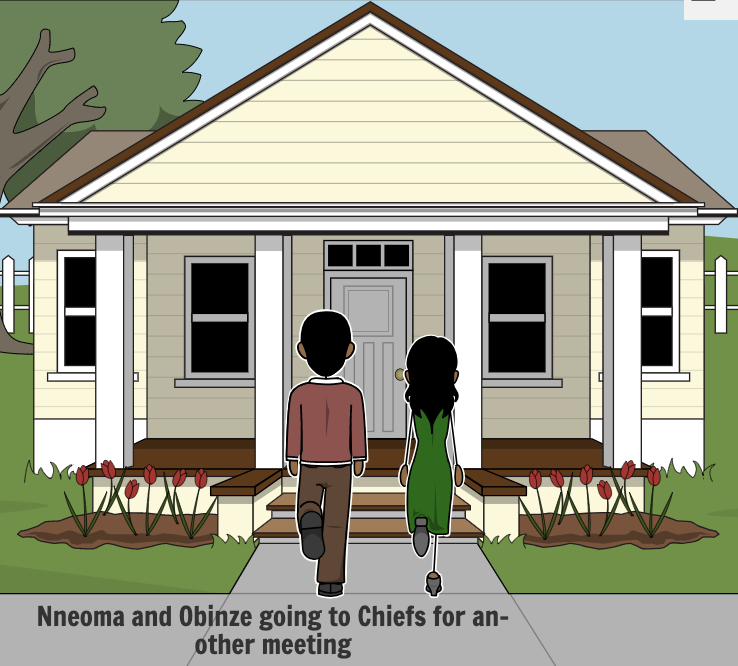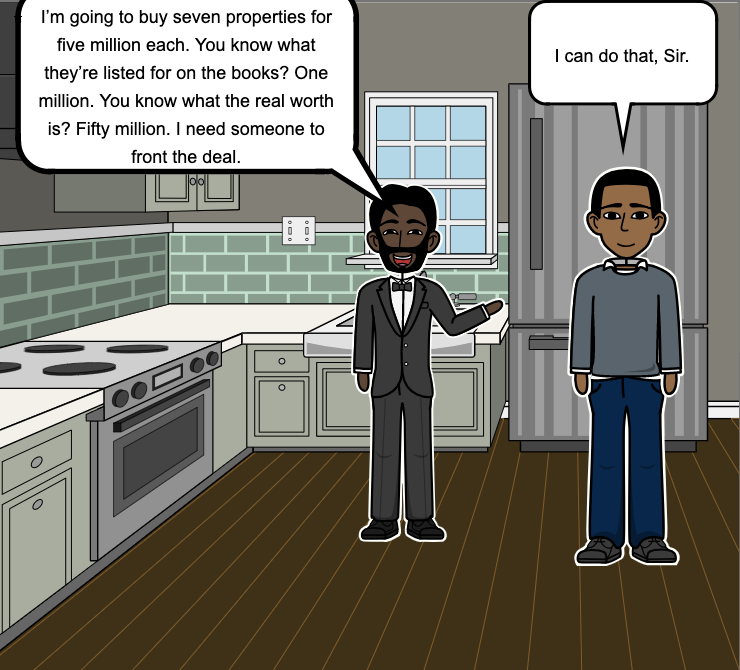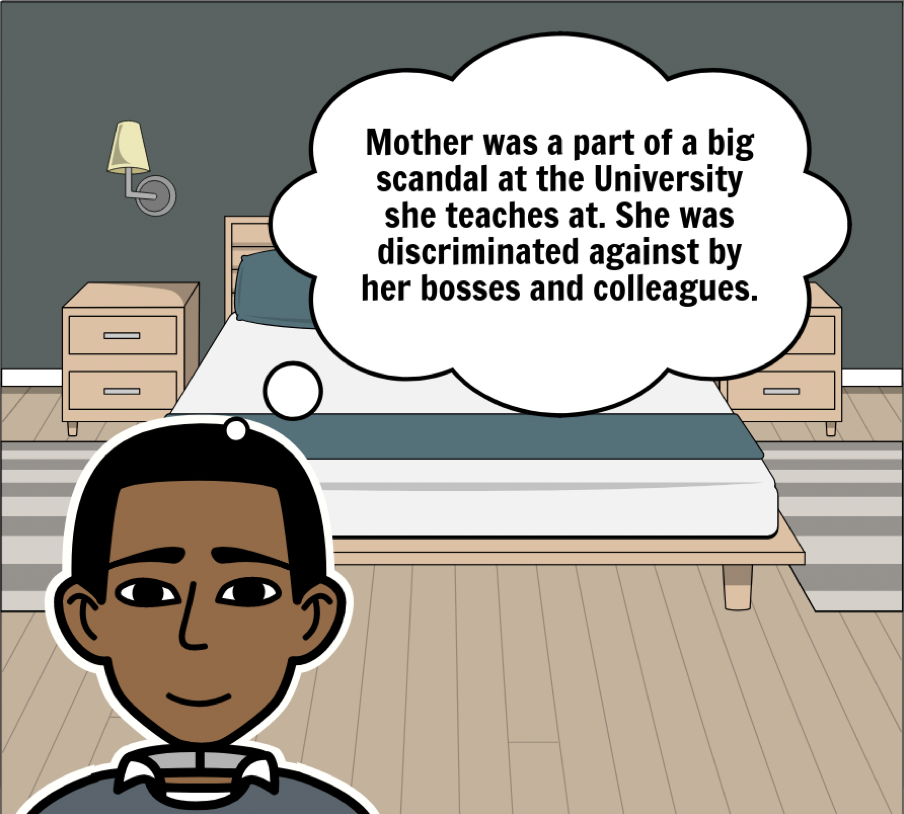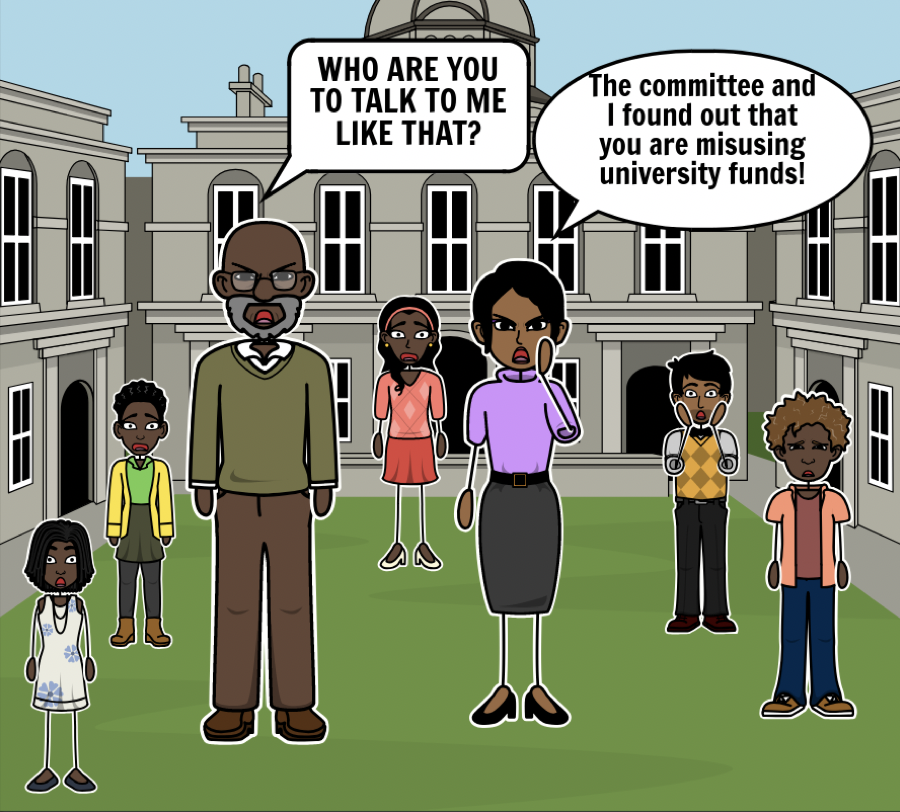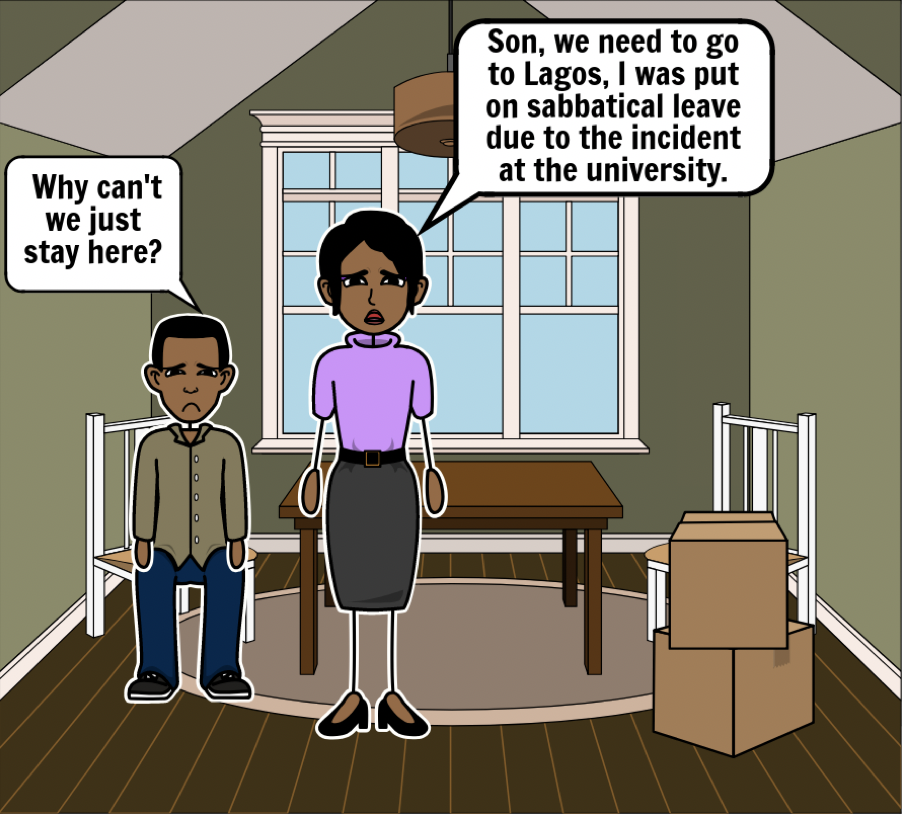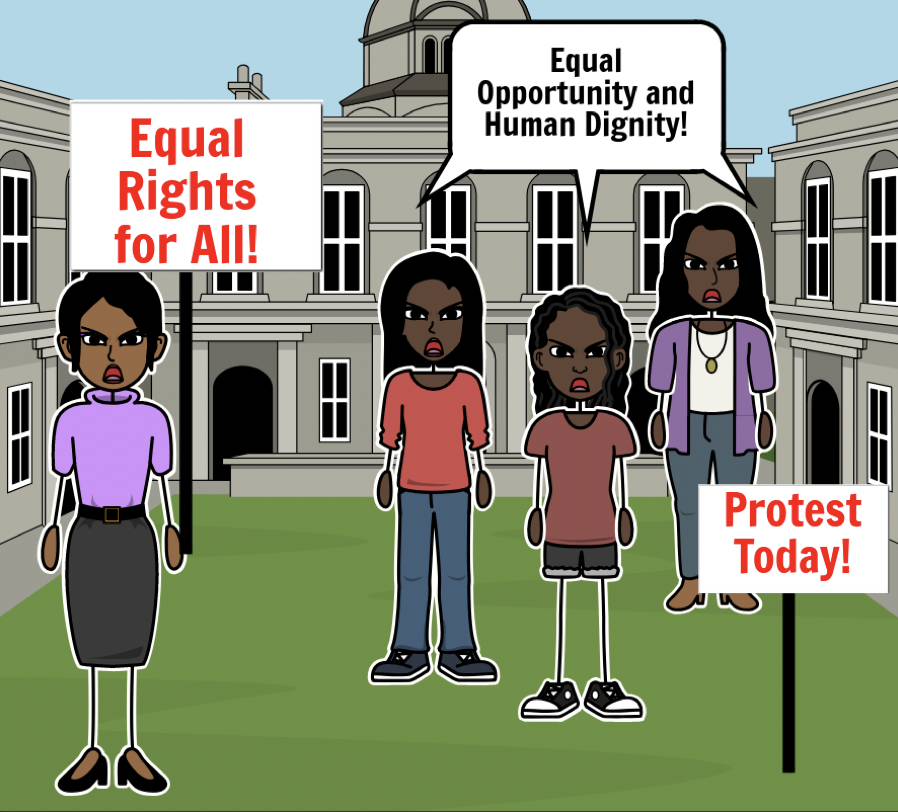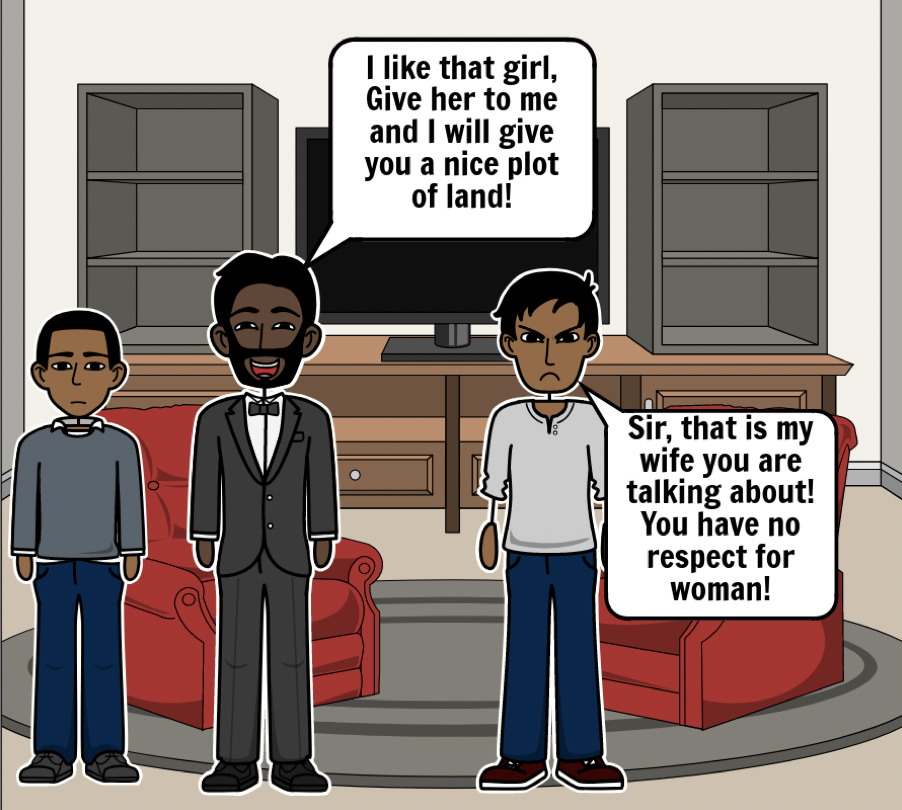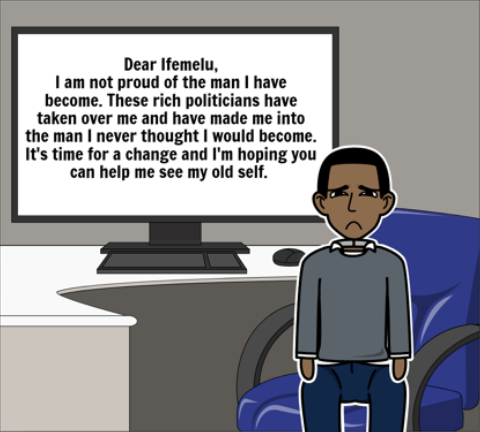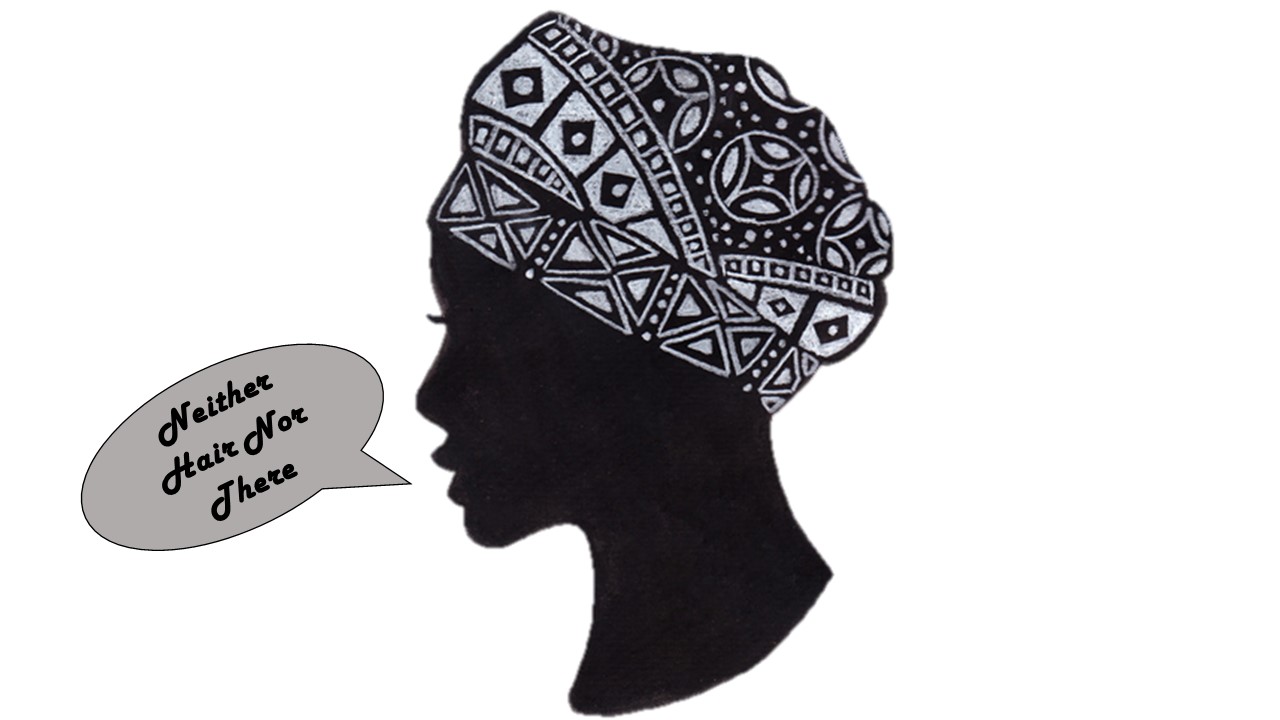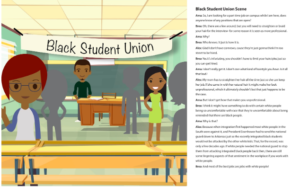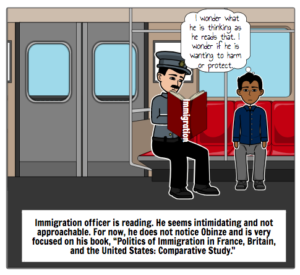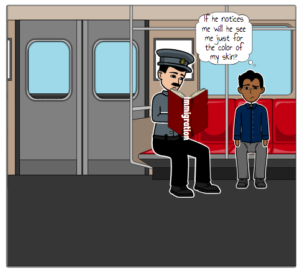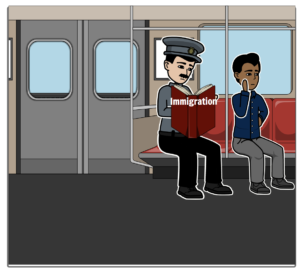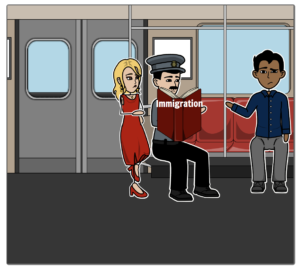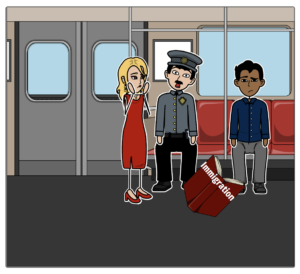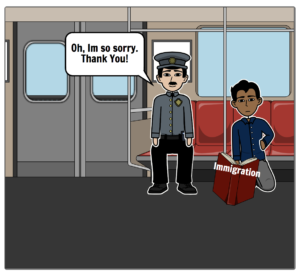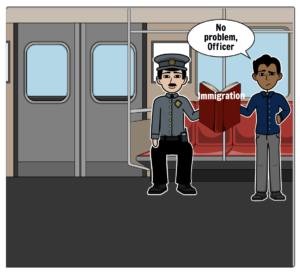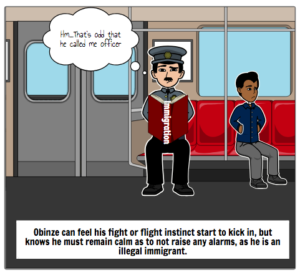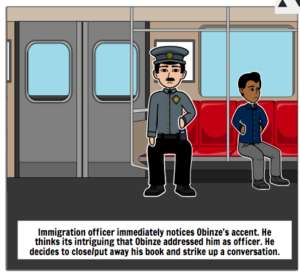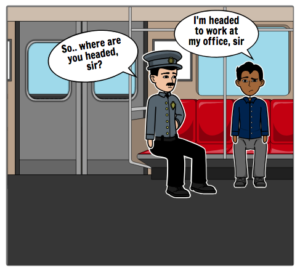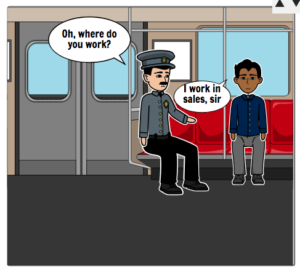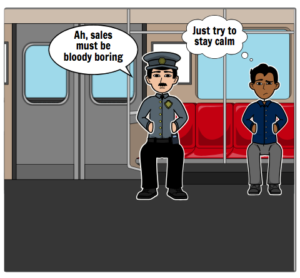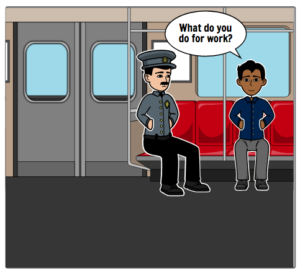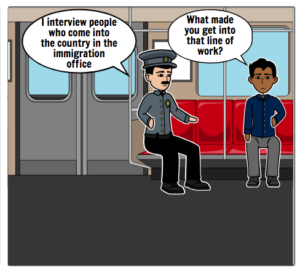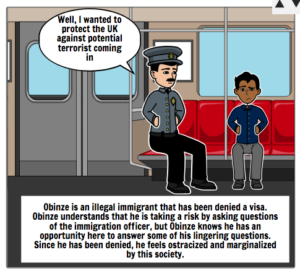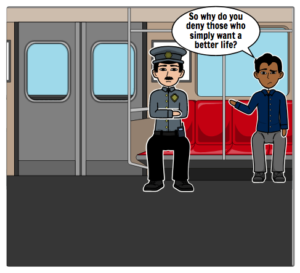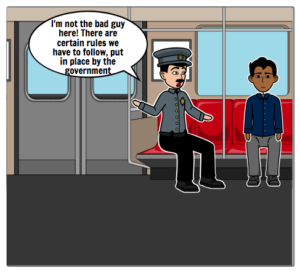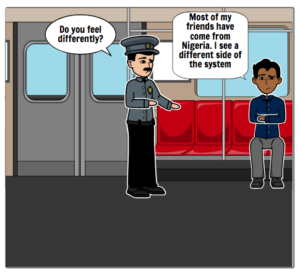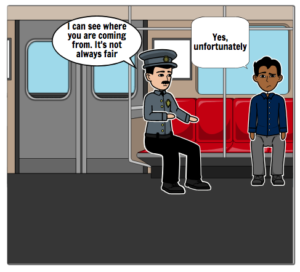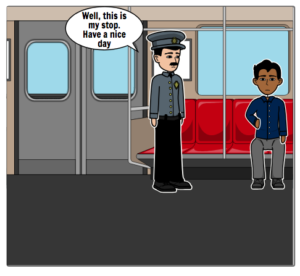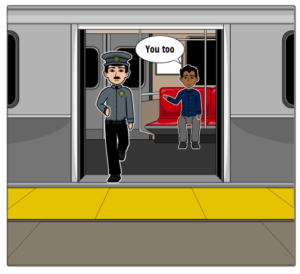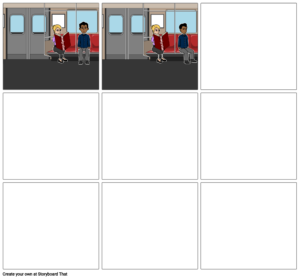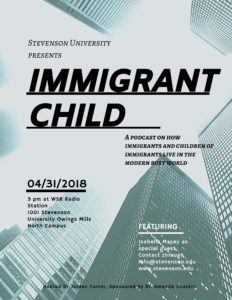
Proposal
We propose that immigrant families are at greater risk of having a presence of depression within their family. The prevalence of depression within families is fueled by other behaviors that are byproducts of experiences faced as an immigrant in America. As a result, these behaviors affect their relationships with others. Nigeria is more of a tribalistic country compared to the individualistic society, and there are multiple instances of this within the Chimamanda Adichie’s novel, Americanah.
Ifemelu was depressed within her first year of immigration (Adichie Chapter 15). She goes from Nigeria where everyone essentially works together in their daily lives, to America, where everyone follows a “on their own” mindset. This is an example of the beliefs of tribalistic countries versus those of individualistic countries. Other ways depression had manifested into Ifemelu’s first year was the observation that race did not exist to her until she came to America. She describes upon returning to Nigeria that her race disappeared when she stepped off of the plane.
Ifemelu also experienced the struggles in paying for rent, felt homesick as she suffered from lack of social life/activity. Adichie writes, “Between her and what she should feel, there was a gap. She cared about nothing. She wanted to care, but she no longer knew how; it had slipped from her memory, the ability to care. Sometimes she woke up flailing and helpless, and she saw, in front of her and behind her and all around her, an utter hopelessness. She knew there was no point in being here, in being alive, but she had no energy to think concretely of how she could kill herself” (Adichie 192).
Another character who was directly affected by depression was Dike, who attempted suicide in chapter 43. Ifemelu refused to believe in the possibility that he was depressed as she said, “He looked no different from before; there were no shadows under his eyes, no funereal air about him” (Adichie 469). Dike’s depression was also fueled by his identity crisis in which he felt stressed between not knowing his father/having a positive father figure, and not understanding why he is different and treated differently by others.
Aunty Uju is another character who deals with behaviors linked to depression such as anxiety. Ifemelu notes that upon seeing her aunt in America, she had changed and become more stressed than she was before. This affects her relationships with Ifemelu and Dike as well as her relationships with her significant others.
In 2017, a study was conducted in order to whether there is a relationship between source-country individualism and depression among different immigrant groups, with results stating, “Immigrants who migrate from countries with low levels of individualism to a highly individualistic nation were found to be particularly vulnerable during their initial years after migration, highlighting the role that cultural shock may play” (Frank and Feng). The results essentially mean that those who come from a country with strong beliefs of individualism like Germany or South Africa, aren’t as depressed as those that come from a country with collectivists beliefs like Guatemala and Indonesia.
We decided our platform will follow a podcast and discuss Isabella’s family’s experience as immigrants. We chose this medium in particular because it addresses a real issue with a real story. We felt that an experience with depression and immigration would be difficult to script without a realistic perspective. We chose to do a podcast because it would answer questions directly and allow a conversational tone to relay the very real experience.
Script
Jordan: Hello everyone, welcome again to another episode of Immigrant Child! Today we have Isabella Maxey, a student at Stevenson University, with us today to talk about her family’s experience as immigrants in America. Throughout the podcast we’ll be answering the questions you all have as my faithful listeners! Isabella how’re you doing today?
Isabella: I’m good, excited to be here!
Jordan: That sounds great! Now to kick things off, I’d like to start with the question of what are some common misconceptions that Americans seem to have about immigrants?
Isabella: So a lot of Americans tend to think that immigrants are uneducated. And that stems from the idea that most immigrants cannot speak English, when in reality many actually do, they just speak with accents or occasionally speak broken English because it is their second language. But because immigrants speak with accents or lower-level English, people assume that they also have lower-level education, and they attribute that to where they are from. Then the misconception develops into, “Oh, people from *that country* are not smart.” When if anything immigrants are smarter because they know at least two languages.
Jordan: You know the funny thing about the English language is that our language is one of the hardest to learn in the world! Now Isabella, we have a question from kwolfsheimer. “What is the hardest thing you deal with on a daily basis as an immigrant child in America?”
Isabella: So because I was born to immigrant parents, I have had two types of upbringing. It is confusing, because the traditional, Filipino values and culture that I grew up with do not always translate well into an American environment. The hardest thing I deal with is probably remembering that I am not what people think of as “American.” I was born here, I speak the language, I was raised here, but for some reason I am not “American” enough to be seen as such, because my parents were born elsewhere and because I look different. A book that describes this experience perfectly is Chimimanda Adichie’s novel Americanah, where the main character describes not knowing race until she came to America, and having the idea of ‘race’ disappear when she returns to her homeland. (Adichie, 2013)
Jordan: In 2017, a study was conducted in order to indicate whether there is a relationship between source-country individualism and depression among different immigrant groups, with results stating, “Immigrants who migrate from countries with low levels of individualism to a highly individualistic nation were found to be particularly vulnerable during their initial years after migration, highlighting the role that cultural shock may play” (Frank and Feng). This essentially means that those who come from a country with strong beliefs of individualism like Germany or South Africa, aren’t as depressed as those that come from a country with collectivists beliefs like Guatemala and Indonesia. Considering how long has your family lived in America, did this have a factor in why your parents decided to come to America? How long have they lived here?
Isabella: Since 1995, so about 24 years. They were petitioned over by my aunt who was a nurse, and America at the time was experiencing an incredible shortage of nurses, thus there was an influx of Filipino nurses coming into America. My parents said that as much as they miss Philippines, there is a secured freedom here that we don’t have back home; Philippines is still a developing country and things can change in an instant in terms of government, and many dangerous things go overlooked. In America, freedom is absolute to a certain degree, and if it is threatened there are people to fight for it. Things don’t go overlooked here, everyone seems to have a problem with everything but it contributes to us being safer, according to my parents.
Jordan: It’s wonderful that your parents knew they made the right decision for themselves. Did your family feel welcomed when you first arrived?
Isabella: My parents came over here to be nurses and I would say that they did feel welcomed, I can’t speak for all of their experiences but overall they felt welcomed enough to help petition other Filipinos to come over as nurses.
Jordan: Earlier you mentioned the book, Americanah, and it’s story of the character’s, Ifemelu, experience as an immigrant from Nigeria. When your parents first arrived, what problems or challenges did they face? Do you feel that Americanah, portrayed the journey of an immigrant in the right light, or was there something missing?
Isabella: When they first arrived, there were a lot of issues with finding places to live. They were still dating at the time, and traditionally Filipinos don’t cohabitate until marriage, so my mom stayed with my sister and my dad had to find another place to live. Also, jobs became very wishy-washy after 9/11, and everyone with an accent was questioned during job interviews. Luckily my parents were able to secure nursing jobs despite having to move to Maryland. My dad also got into the wrong crowd for a while, and fell into a lot of problems that caused a lot of financial and personal strain on my family that probably wouldn’t have happened had he been more experienced with the culture of America.
Jordan: Cross-cultural psychologists study how different cultural factors influence individual behavior, often focusing on things that are universal among different cultures of the world. One phenomenon that cross-cultural psychologists have observed is how people from individualist cultures describe themselves compared to how those from collectivist cultures (Cherry). Can you describe your experiences having both the Philippine and American culture as part of your life? Is there any distinction or connection between the individualistic culture you’ve found here in america compared to the Collectivist culture found in the Philippines?
Isabella: Being a Filipino-American is a confusing state, mostly because it feels as though there isn’t one party you belong to. Like I said, I speak English, I was raised in America, I know American culture, but I’m not seen as American. I also know Filipino culture, speak Tagalog (the Filipino language), and look Filipino, but in Philippines I am not Filipino either. You would think that being raised with two cultures would mean you belong to both, but there’s a cognitive dissonance in the sense that you actually belong to neither. You have to learn to navigate through both cultures, what is appropriate to say or do when, and what is important derives from what both cultures value. I am not a watered-down version of either culture, I am a product of their amalgam.
Jordan: The experiences your family had as immigrants and your experiences as a first generation immigrant child are very eye opening! We have time for one more question, Do you feel welcomed in America?
Isabella: It depends on which America we are talking about. The racist, confederate flag-toting Trump side of America that has shut down borders and thrown children into detention centers; or the America that provides refuge for immigrants and asylum-seekers and opportunities to speak one’s mind. So basically, it’s whether or not I am welcomed to America as it is now, or as it should be. I think it doesn’t matter whether or not I am welcomed, because I am already here. And while there are times that I don’t feel safe or welcomed by certain people, they are outnumbered by the times that I do. And that’s a product of where I am in this country and being raised middle-class, not everyone has this experience.
Jordan: Leaving the viewers with your perspective of America, I love it! Thank you very much for coming to talk with us about your experiences here! That is all the time we have, but would you like to say anything for our listeners before we sign off?
Isabella: There’s a reason immigrants are coming here; by boatloads, climbing fences, crossing borders. Just last year, there were over 319 thousand asylum-seekers pending asylum according to the U.S. Citizenship and Immigration Services Division. There is something about America that tells these people they have more hope here than where they were born. Be that America, not the one that other Americans want you to be.
Jordan: Well you heard here first! Thank you again to our wonderful guest, Isabella! My name is Jordan Turner, and this stay tuned for another episode of Immigrant Child!
Bibliography
- Frank, Kristyn, and Feng Hou. “Source-Country Individualism, Cultural Shock, and Depression among Immigrants.” International Journal of Public Health, Mar. 2019. EBSCOhost, doi:10.1007/s00038-019-01218-z. (From school library database)
- This source evaluates the topic of individualism and how beliefs affect an immigrants mindset in order to determine whether or not is a relationship between source-country individualism and depression among different immigrant groups. In 2017, a study was conducted in order to whether there is a relationship between source-country individualism and depression among different immigrant groups, with results stating, “Immigrants who migrate from countries with low levels of individualism to a highly individualistic nation were found to be particularly vulnerable during their initial years after migration, highlighting the role that cultural shock may play” (Frank and Feng). The results essentially mean that those who come from a country with strong beliefs of individualism like Germany or South Africa, aren’t as depressed as those that come from a country with collectivists beliefs like Guatemala and Indonesia; “Overall, the prevalence of depression increased with years after immigration” (Frank and Feng). however, this was not the case for immigrants from countries with very low levels of individualism.. This effect was relatively large, indicating that the results varied greatly between different immigrant groups. The conclusion states that a high level of source-country individualism tends to increase the prevalence of depression among immigrants. There is also signs of a cultural shock effect, the prevalence of depression was stronger in those who migrated from countries with low levels of individualism. This source allows us to look further in how immigration affects a person’s mindset, and how someone’s place of origin can affect their mindset and emotions when they migrate/travel to a country with opposing beliefs.
- Thibeault, M.Alexander, et al. “Ethnic Identity in Context of Ethnic Discrimination: When Does Gender and Other-Group Orientation Increase Risk for Depressive Symptoms for Immigrant-Origin Young Adults?” Cultural Diversity and Ethnic Minority Psychology, vol. 24, no. 2, Apr. 2018, pp. 196–208. EBSCOhost, doi:10.1037/cdp0000174. (From school library database)
- This source tackles the effects of ethnic discrimination and its impact on identities; Ethnic discrimination increases risk for depressive symptoms. Sociocultural identity development is especially relevant during emerging adulthood. Studies examining impacts of ethnic identity have yielded mixed results; While the current study examines conditions under which one aspect of ethnic identity, affirmation/belonging, moderates the impact of perceived ethnic discrimination stress on depressive symptoms. This expected to vary by other-group orientation and gender, in accordance with rejection sensitivity theory. The method for this study was made of a multicultural sample of 290 non-White immigrant-origin emerging adults from mixed cultural backgrounds and generational statuses attending a college in the Southeastern United States, who went on to complete electronic self-report questionnaires. The study resulted that more robust support was provided for social identity theory rather than rejection sensitivity theory. Some results indicated a protective effect for those endorsing stronger affirmation/belonging paired with greater other-group orientation. Additionally, women with weaker affirmation/belonging demonstrated greater increased depressive symptoms compared to men with weaker affirmation/belonging. The conclusion for this sample deduced that social identity theory was relevant to the impact of affirmation/belonging on the relation between ethnic discrimination and depressive symptoms contingent on other-group orientation and gender. This finding underscores the importance of examining ethnic identity in a nuanced manner. Implications for these results also extended to college counseling centers, where inclusion of sociocultural identity in case conceptualization would be useful.
- Perng, Julie. “Depression and Its Links to Conflict and Welfare in Nigeria.” Nasikiliza, 4 Feb. 2018, blogs.worldbank.org/nasikiliza/depression-and-its-links-to-conflict-and-welfare-in-nigeria. (Media Source)
- This source focuses on welfare and how it affects depression within Nigeria, where Ifemelu is from in Americanah. Studies, according to the most recent results of the Nigerian General Household Survey (GHS) Panel, show that Chronic depression affects about 20 percent of Nigerian heads of households. Poor mental health is strongly associated with having experienced adverse events, findings show that depression is associated with lower investment in human capital and lower labor participation. Of all the adverse events, experiencing conflict in the last two years has the largest and strongest relationship with the respondent’s measure of depression, registering a nearly 26 percentage point increase in the probability of being depressed. In terms of income, it is significantly and negatively correlated with depression; Poverty and adverse events going in tandem. One of their findings stated that “Our findings show that respondents who are classified as chronically depressed (according to the CESD scale) have a lower likelihood of engaging in any form of work”. Depression amongst parents ends up affecting their children’s education, specifically how much they’re willing to spend.
- Cherry, Kendra. “How Do Individualistic Cultures Influence Behavior?” Verywell Mind, 22 Oct. 2018, www.verywellmind.com/what-are-individualistic-cultures-2795273. (Media Source)
- This media source is an article describing the behavioral attributes of individuals who grew up within individualistic cultures. This article juxtaposes the perspective of those who grew up in collectivistic cultures, which the article defines as well in order to draw comparisons between the two. The article defines individualistic cultures as those that stress the needs of the individual over the needs of the group as a whole. It defines collectivistic cultures as those that stress the importance of the group and social cooperation. We used this article as the novel we read in class and utilized within our script and podcast, Americanah, capitalizes on immigration from Nigeria to the United States. While Nigeria is a collectivistic culture, the United States is an individualistic one. Going off of this information, we were able to conduct a thorough analysis using the research from this media source in order to properly create our script for the podcast. The article source is thorough in describing the aspect and allowed us to utilize the similar terms and define them within our script.
- Adichie, Chimamanda Ngozi. Americanah (Ala Notable Books for Adults). Knopf Doubleday Publishing Group. Kindle Edition. (Book source)
- Chimimanda Adichie’s novel, Americanah, centers on two perspectives of immigration from two different narratives between characters. The book narrates immigration from the perspective of a woman who immigrated from Nigeria, began a new life in America and willingly chose to go back; and simultaneously narrates immigration from the perspective of a man who illegally immigrated from Nigeria to England and is forcefully deported. The instances of racism they face, the cultural norms that they learn, as well as the hyper-awareness of their differences within the structures of Western society contribute to the breakdowns and character development that further the plot. The source presents an accurate and first-hand depiction of the immigrant experience, both in a legal perspective as well as an illegal one. The distinction between those two experiences is of great importance, as both aspects change the entirety of the course of the characters’ actions. The experience of immigration is never the same for anyone, but the ones that Adichie has described are two of the most common. The novel is a good source because of the multiplicity of perspectives it presents, as well as from two differing gender standpoints. The fact that Adichie has chosen to use two different genders to display the experiences of immigration presents a more accurate portrayal as there are experiences that are only unique to certain genders. We used this source to draw comparisons and similarities between the “immigrant narrative” in our podcast.
- Phiri, Aretha. “Expanding Black Subjectivities in Toni Morrison’s Song of Solomon and Chimamanda Ngozi Adichie’s Americanah.” Cultural Studies, vol. 31, no. 1, Jan. 2017, pp. 121–142. EBSCOhost, doi:10.1080/09502386.2016.1232422. (Literary Source)
- This literary analysis draws comparisons and ideas from Chimimanda Adichie’s book, Americanah, and Toni Morrison’s Song of Solomon. Despite not reading Morrison’s novel in class, one can conclude from the analysis that both presented ideas versed in blackness versus Africanness. The analysis said of Americanah, “Americanah thus provides a contemporary disruption to, and de-romanticization of, the African-American Africanist, signifying myth of Africa as the ‘great aporia’ which lies at the centre of, and gives meaning to, black cultural identity.” The source is stating that Adichie’s novel is able to present the idea that race is separate from ethnicity, in that black culture does not necessarily mean nor is married to the label “African.” The novel capitalizes on this fact, and de-romanticizes the idea that blackness and African are one in the same despite others’ best efforts to marry the two. The literary source is a close, comparative analysis of the ideas presented in both novels and how they compare and contrast with one another in terms of ideas concerning black/African culture as well as immigration being the most defining and visual difference. “In particular, Adichie has, in conversation and in her most recent fiction, suggested that Africans (in the diaspora) articulate themselves differently from African-Americans. Problematized and politicized thus as contested, rather than universally accepted, subjective terrain, blackness more significantly points to the diversity and dynamism of black culture and testifies, in the current socio-political/-historical moment, to recognition of the enduring complexity of black subjectivity.” We used this source to help describe Adichie’s depiction of immigration and how accurate it is when describing the immigrant experience within our podcast.



